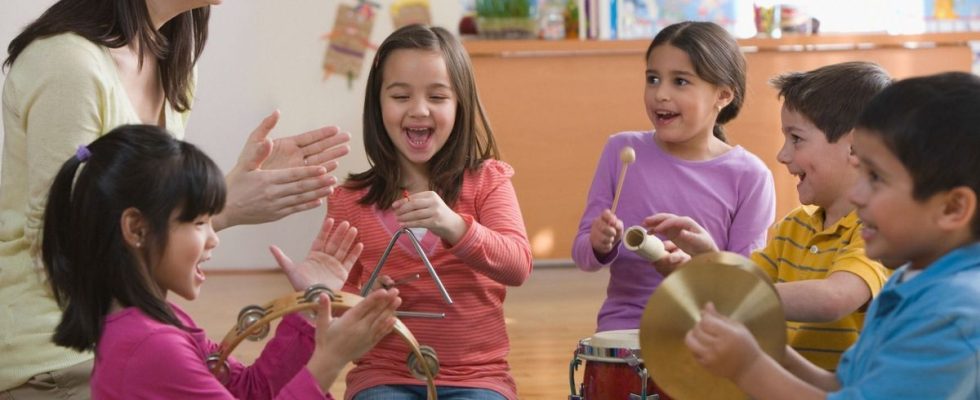Published on
Updated
Reading 2 mins.
Music is one of the school subjects that has evolved the most in recent decades. Far from the Epinal image of learning music theory and the recorder, the students show a real interest in musical education. Two in five young people even want more music lessons at school, according to a new report.
The desire to learn music
As part of this survey, the Royal Philharmonic Orchestra questioned 2,000 British children and teenagers aged 6 to 18 about their relationship with instrumental music. Contrary to popular belief, younger generations do not necessarily favor pieces carried by voices. Thus, 87% of respondents say they listen to instrumental music every day. They do it mainly through films, videos on YouTube but also from school.
The role of school in the discovery of instrumental music varies according to age categories. It is through the school system that 28% of 6-11 year olds become familiar with the great diversity of orchestral music. Things evolve from the entrance to college: from then on, young people turn to instrumental songs of themselves. High school students are thus three times more likely to listen to it on YouTube or through any screen than at school (42% against 14%).
If young people seem to voluntarily initiate themselves to instrumental music, they remain convinced that it should be taught more in class. Some 85% of children and teenagers surveyed by the Royal Philharmonic Orchestra say they would like to learn to play an instrument, or are already doing so. This enthusiasm for instrumental practice is particularly pronounced among schoolchildren (90%), and has diminished over the years. As a result, only 59% of 17-18 year olds want to play an instrument or are in the process of learning.
Encourage the musical vocation of children
Some instruments are more popular than others with young people. The piano is in the lead. A third of respondents would like to know how to play it. Guitar and drums also have many fans under the age of 18, with 29% and 23% respectively interested. Children and teenagers, on the other hand, are much less inclined to the brass instruments, and more particularly to the saxophone and the trumpet. Surprisingly, musical instrument preferences vary across genres. Girls tend to favor families of instruments found in symphony orchestras, while boys like guitar, keyboard or drums more.
However, there are many barriers to everyone learning music. First, socio-economic background. Nearly 20% of the most modest children say they have never listened to instrumental music in their life. There are just as many who don’t want to learn to play an instrument.
For Liz Varlow, member of the viola section of the Royal Philharmonic Orchestra and its board of trustees, these figures attest to the importance of music education at school. “Music needs to be treated seriously as a subject of the GSCE [examen britannique de fin d’études secondaires, ndlr.] and A-level [équivalent britannique du baccalauréat, ndlr.] and that children from all parts of the UK and from all socio-economic backgrounds have the opportunity to learn an instrument during their schooling. Our research shows that there is considerable interest in music, but this fades as young people enter high school, likely because their desire to learn to play an instrument has not been satisfied at school. ‘school. We need to nurture their talents now to fill the orchestras of tomorrow“, she said in The report.
